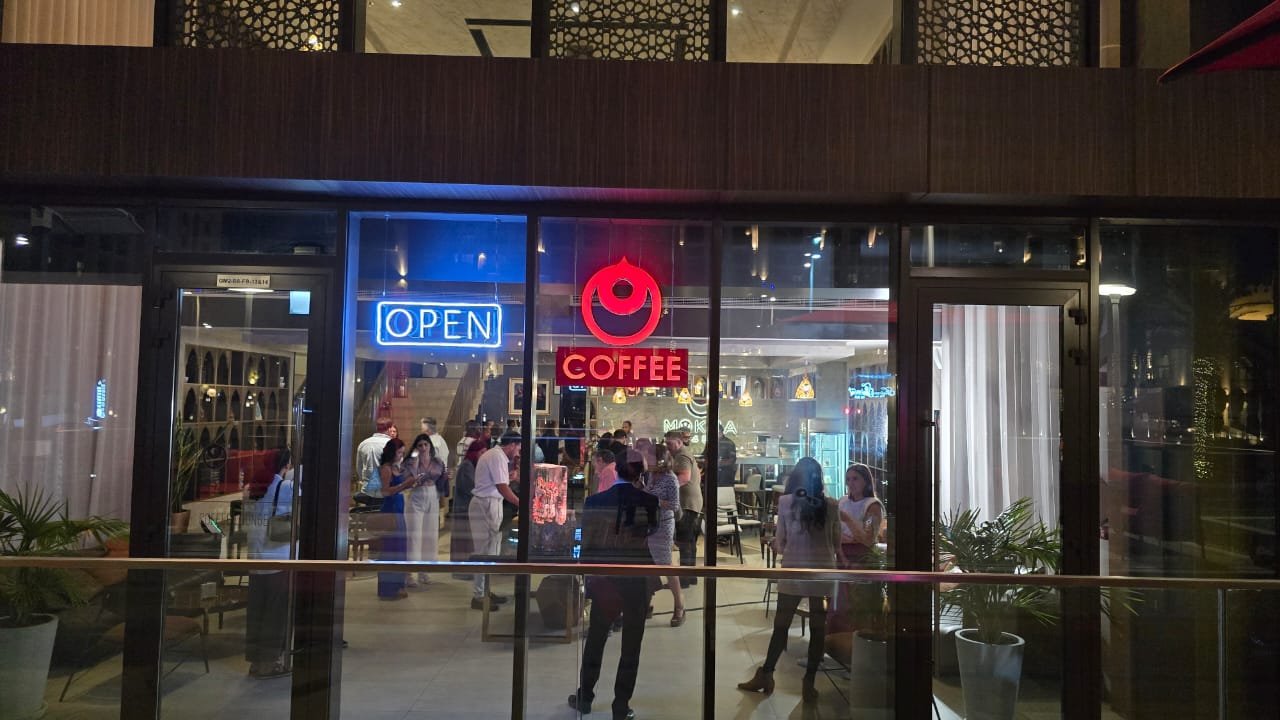The Middle East continues to affirm its position as a key driver of growth in the global coffee industry. According to Project Café Middle East 2025, a comprehensive report by Allegra World Coffee Portal, the region’s branded coffee shop market grew by 11% over the past year, reaching an impressive 11,163 outlets. Despite geopolitical tensions, the region’s vibrant coffee culture and economic potential keep attracting investments from global and regional operators alike.
Saudi Arabia and UAE Lead the Market Transformation
Saudi Arabia remains the heart of the Middle Eastern coffee industry, boasting 5,130 branded coffee shop outlets—accounting for 46% of the region’s total. The market is home to over 120 brands, including international giants like Starbucks and Dunkin’, alongside prominent domestic players such as Barn’s, Kyan Cafe, and Mezaj Magribi. These local brands have emerged as significant contributors to the sector’s growth, reflecting Saudi Arabia’s ambitious Vision 2030 plan, which positions coffee as a pillar of the nation’s economic and cultural development.
Similarly, the UAE stands out as a hub for coffee innovation and hospitality, with its sophisticated consumer base driving demand for premium coffee experiences. Specialty coffee, in particular, has gained significant traction in both Saudi Arabia and the UAE, with over 80% of industry leaders identifying it as a vital segment for market success.
Emerging Markets on the Rise
Beyond the well-established hubs, markets like Morocco and Jordan are becoming hotspots for coffee investments. Morocco recorded the highest growth rate in the region at 19%, followed by Saudi Arabia (16.5%) and Egypt (13.3%). This expanding footprint underscores the increasing appeal of smaller markets to operators seeking fresh opportunities.
Boutique operators are also playing a critical role in shaping the market landscape. Brands such as Bacha Coffee, inspired by Moroccan heritage, and Café Kitsuné, with its French-Japanese fusion concept, have made strategic entries into new MENA markets. Local innovators like Egypt’s Koffee Kulture and Saudi Arabia’s Row are redefining regional standards and gaining recognition as branded chains.
Challenges in a Complex Landscape
Despite its robust growth, the MENA coffee market faces significant challenges. Political instability in Yemen and the ongoing Israel-Gaza conflict have disrupted supply chains, particularly along the Red Sea, a crucial coffee shipping route. This has led to delays and increased operational costs for coffee businesses. Additionally, consumer boycotts of some Western chains over perceived political stances have added pressure to the industry.
However, the resilience of the market is evident. Fourteen of the 20 MENA markets analyzed in the report achieved net outlet growth, and nearly 76% of industry leaders reported positive trading conditions over the last year. Only Lebanon and Tunisia saw contractions, with declines of 9.1% and 19.3%, respectively.
The Future of Coffee in the Middle East
The MENA region’s deep-rooted coffee culture, coupled with a growing preference for premium and specialty coffee, signals a promising future for the sector. According to the report, the number of branded coffee shops in the region is expected to surpass 12,160 by November 2025 and grow to 16,460 by 2029, at a compound annual growth rate (CAGR) of 8.1%. Saudi Arabia is projected to lead this growth, while Morocco is expected to be the fastest-growing market with a forecasted 19.2% CAGR.
This growth is driven largely by the region’s young, social media-savvy population, whose preferences are reshaping coffee trends. Gen Z consumers are fueling demand for aspirational and high-quality coffee experiences, encouraging both global and regional operators to innovate and expand their offerings.
A Trusted Resource for Industry Insights
Project Café Middle East 2025, a 392-page in-depth analysis, serves as a critical resource for coffee industry stakeholders. It provides a detailed look at market sizing, growth projections, pricing strategies, and consumer behavior across 20 MENA markets. Highlights of the report include:
- Over 2,000 surveys with UAE and Saudi coffee shop consumers.
- Insights from more than 200 industry consultations and interviews.
- Comprehensive profiles of major operators and their strategies.
- A pricing analysis of key beverages such as cappuccinos and lattes.
Published annually since 1999, the Project Café series has established itself as a leading resource for understanding the social and economic impact of the coffee industry. This latest edition offers essential insights for businesses looking to navigate the complexities of the Middle Eastern market and seize emerging opportunities.
Jeffrey Young, Founder and CEO of Allegra Group, emphasized the market’s resilience:
“The MENA branded coffee shop market continues to show incredible strength despite geopolitical challenges. The emergence of boutique operators and the growing premiumization of the coffee industry highlight the region’s potential for sustained growth in the years ahead.”
With a dynamic market landscape and a rich cultural heritage, the Middle East is not only preserving its legacy as a coffee epicenter but also charting a bold path forward. For stakeholders, the insights offered by Project Café Middle East 2025 provide a roadmap for thriving in this exciting market.
